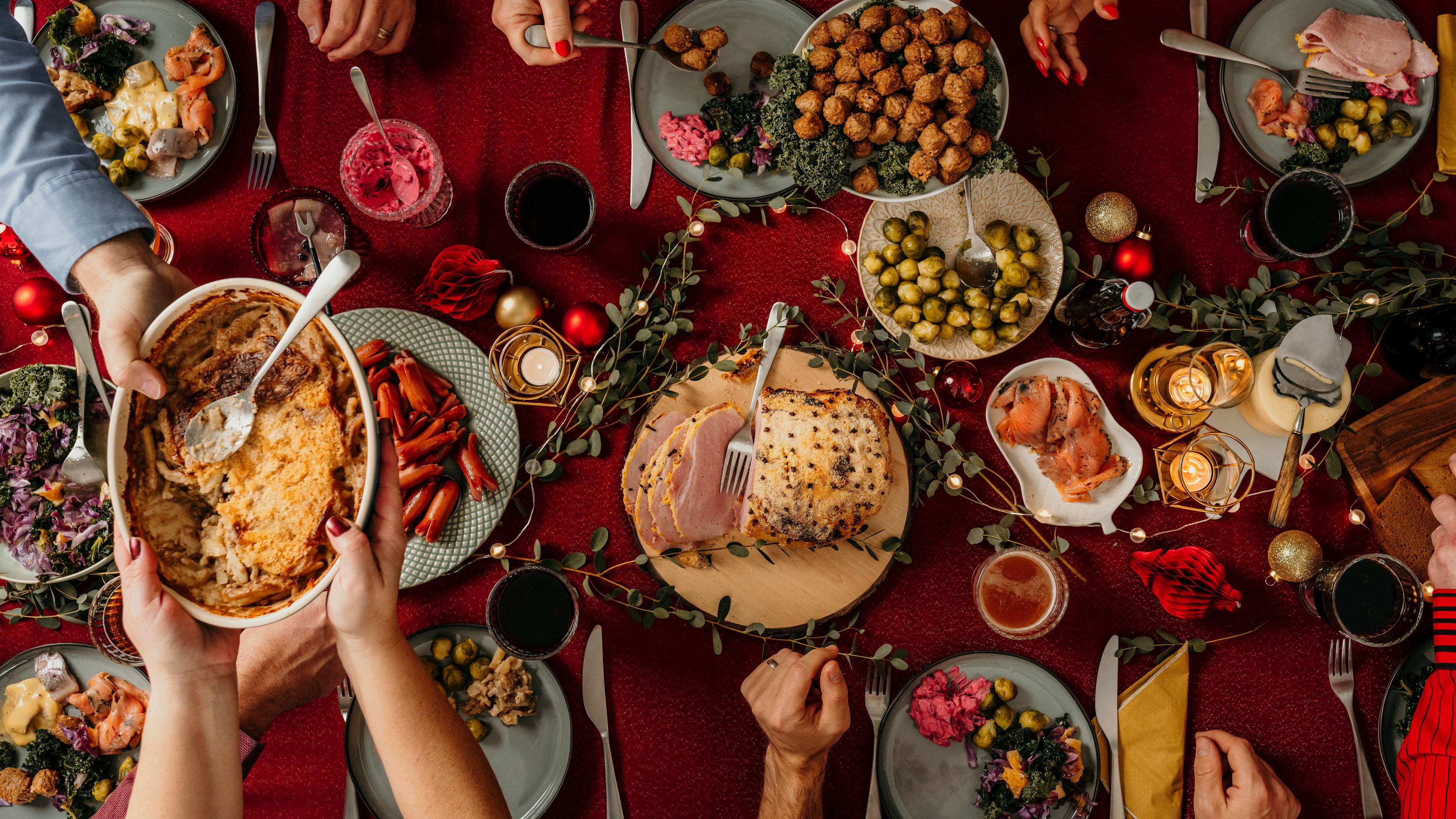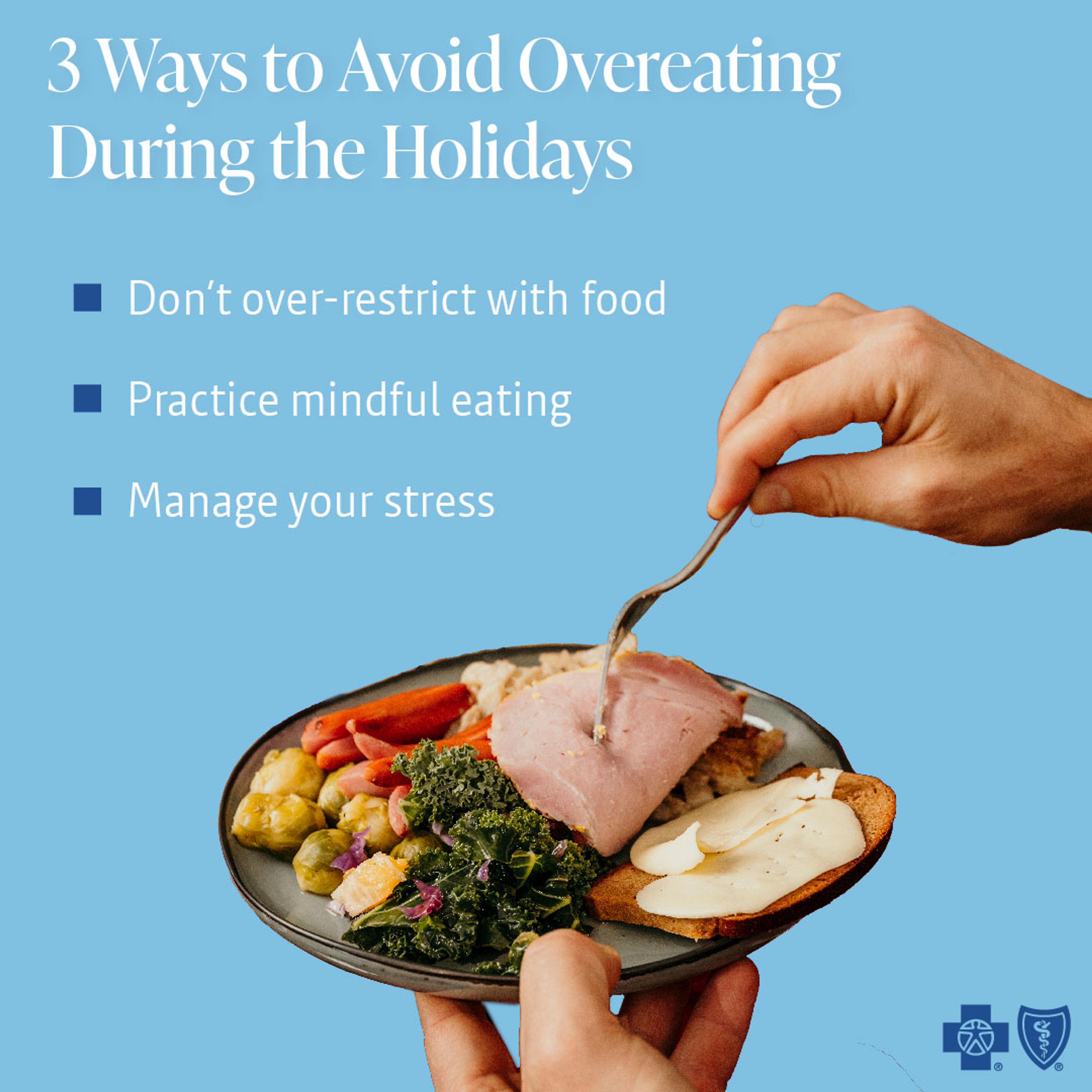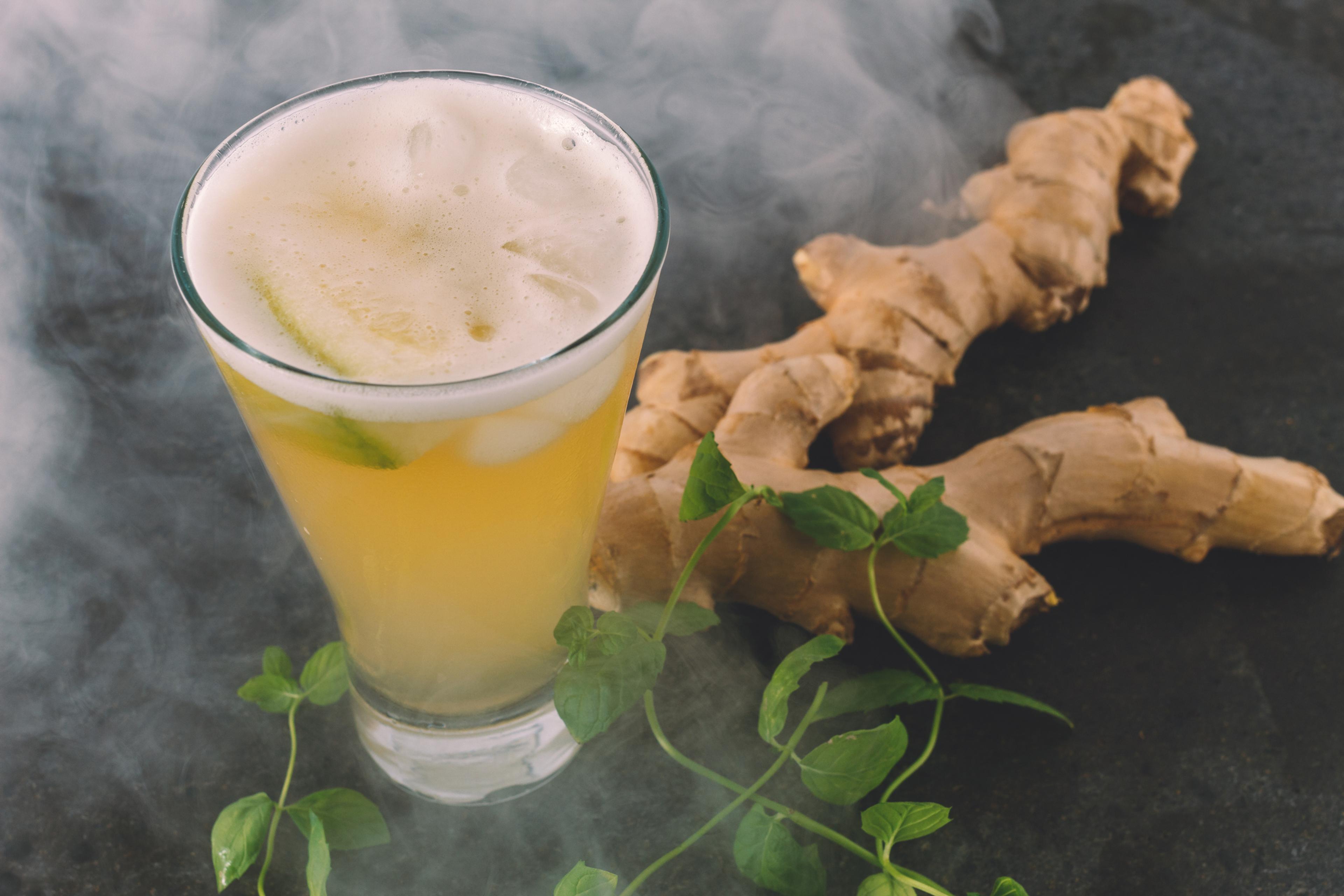3 Ways to Avoid Overeating During the Holidays

Shanthi Appelo
| 4 min read

The holidays are approaching, and so many of these celebrations seem to revolve around high-calorie food and drinks. Family parties often feature a big buffet of appetizers, main dishes and a sea of desserts. Work party potlucks have tables crammed with goodies. And meeting friends for the holidays often means a drink or dessert – or both. But there are ways to avoid overeating during the holidays.
A 2021 survey that delved into people’s holiday food habits had some surprising results. The poll found that people, on average, expected to gain up to eight pounds because of overindulging during the holiday season. Nearly 40% of those surveyed said during past holiday celebrations, they’d eaten so much they’d felt ill. Some also planned for overeating by wearing stretchy clothes so they could overindulge and remain comfortable.
But eating to excess to the point where people have to loosen a belt or unbutton their pants does not have to be a holiday tradition. There are ways to rein in overeating and make plans for a healthier holiday season.

Don’t over-restrict with food
Too often, people decide to stamp out holiday excess by promising themselves they will exhibit a big dose of willpower, which morphs into overly restrictive behavior. They may decide to swear off all sweets, give up their favorite side dishes and just have a salad or some raw veggies while everyone else around them fills their plates.
For many, these unrealistic food restrictions can lead to binge eating later. During a binge, people eat way too much, and typically overindulge in high-fat, high-calorie foods. These binges often lead to feelings of shame or guilt, and a promise by people to restrict their food again in the future, creating a disordered restrict-binge eating cycle.
Instead of setting too-strict rules, people should go into a holiday celebration knowing they are going to enjoy – but not overindulge. They can plan to eat small portions of a few of their favorite things, while also filling their plates with lean protein, vegetables and fruit options. If they want to enjoy a glass of wine or cocktail, then they’ll know the rest of their beverages might be no-calorie sparkling water instead of soda.
The power of mindfulness and being present while eating
Wolfing down food or eating while distracted are surefire ways to overeat without appreciating what’s being consumed. This kind of mindless eating is often linked to weight gain and overindulging, according to Harvard’s School of Public Health.
A good way to avoid overeating during the holidays is to practice mindfulness. Being present with food while eating means focusing on the senses – smell, taste, sight – while enjoying a meal. This is actually easier to do at the holidays when people tend to sit with family and friends during a meal. Some ways to incorporate mindfulness during the holidays.
- Take a few deep breaths before eating
- Look at the food on the plate, noticing how it smells
- Talk about the food with others sitting nearby, complimenting the dishes and how they taste
- Thank the person who brought or made the food
- Think about how the body feels as it is getting full
Take care of stress
Whether it’s anxiety over gift-buying or family overload, holidays can often increase stress levels. A poll before the 2022 holidays showed that nearly 50% of those surveyed said they felt their stress levels spike during the time of holiday celebrations. Money concerns were a driving factor, but so were worries over gifts and family dysfunction issues that seemed to come to a head during this season. This can lead to overeating. When the body feels stressed, the hormone cortisol is released, and cortisol often increases the appetite and leads to overindulging in high-fat or high-calorie foods.
Be aware of this creeping stress and plan ahead for ways to combat it. These include getting enough sleep, staying on a regular schedule instead of indulging in late nights, and making time for regular exercise.
Shanthi Appelö is a registered dietitian and health and wellness spokesperson at Blue Cross Blue Shield of Michigan. For more health and wellness information, visit AHealthierMichigan.org.
Photo credit: Getty Images





